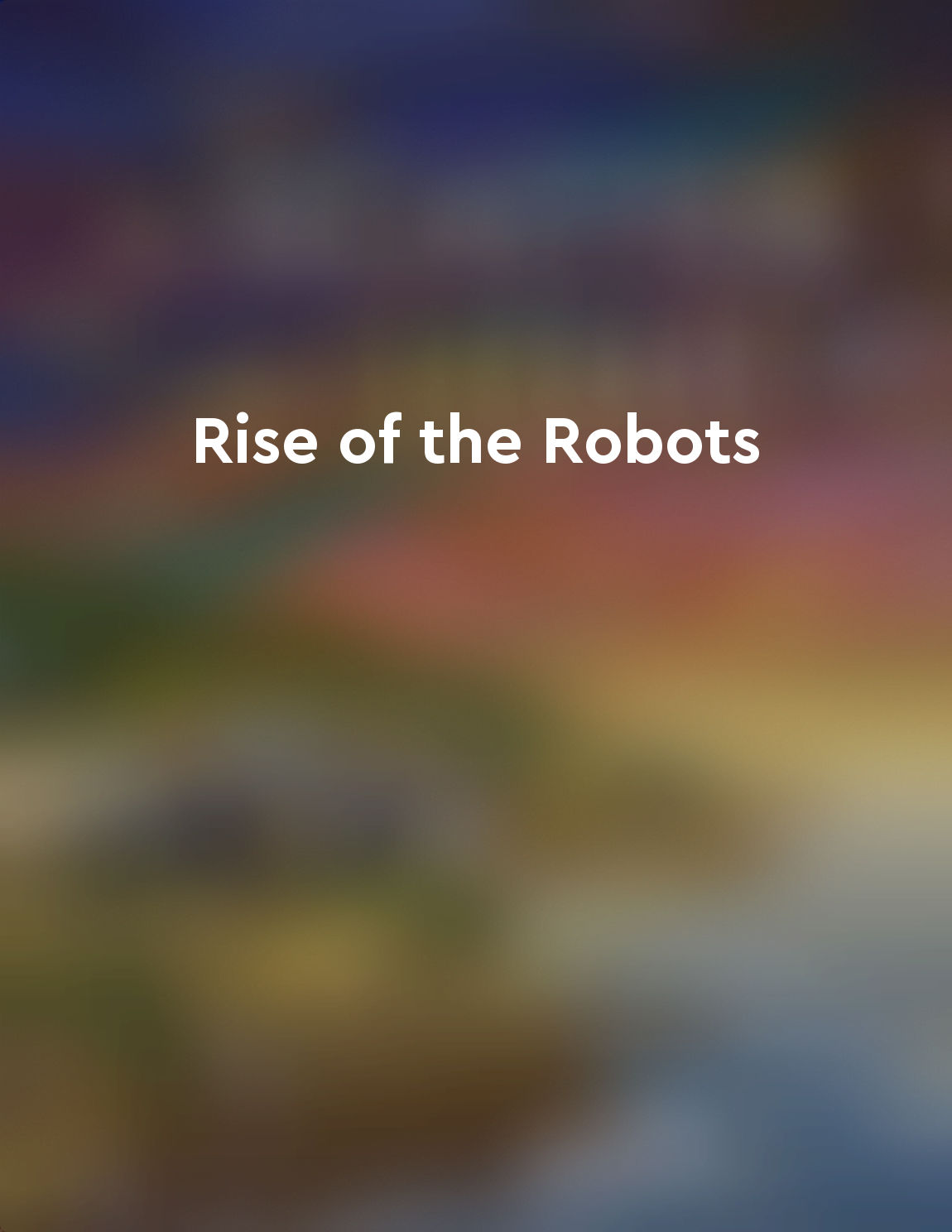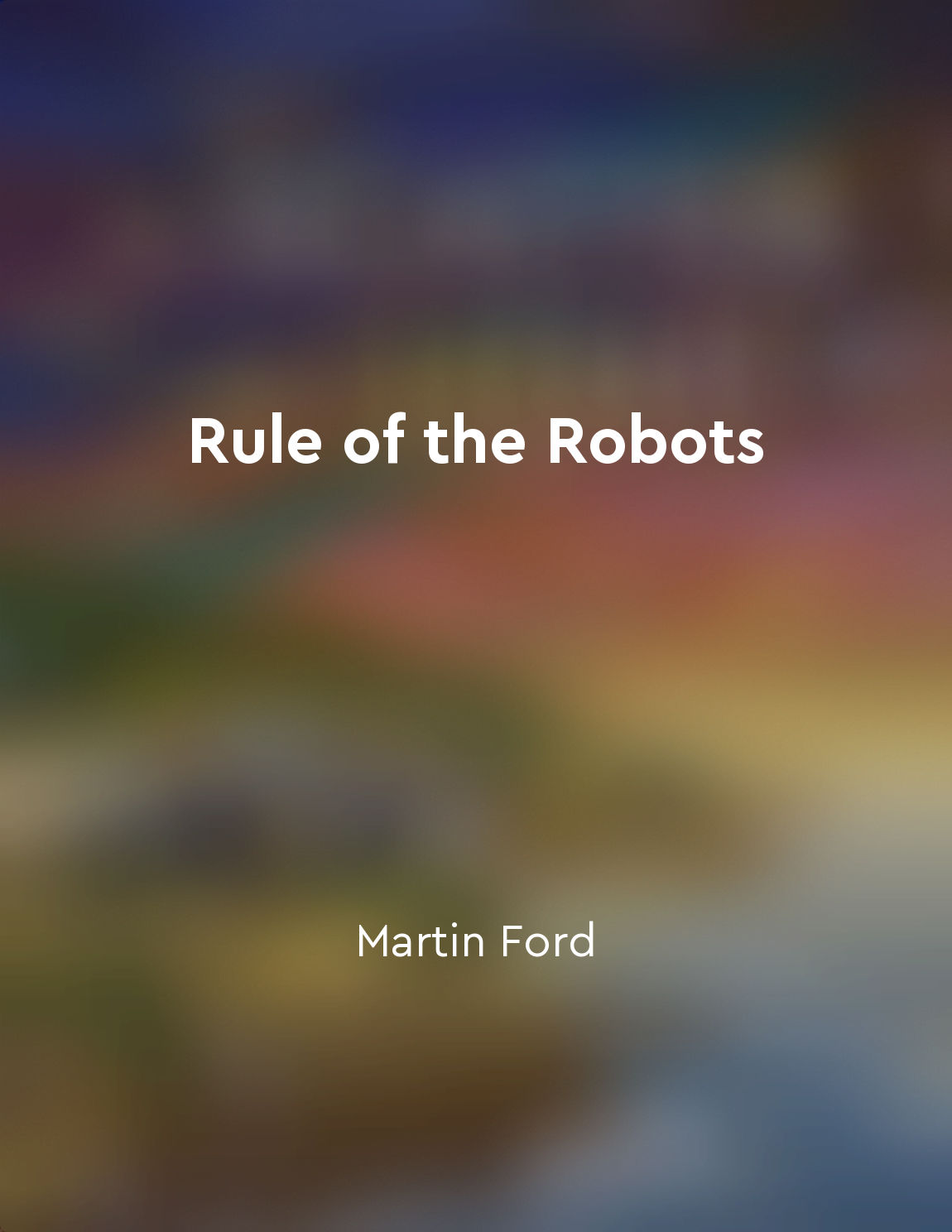The impact of automation on employment patterns is considered from "summary" of Industrial Relations and Labour Laws, 6th Edition by S.C. Srivastava
Automation has been a significant factor in shaping the employment landscape in recent years. The introduction of new technologies and processes has led to changes in the types of jobs available and the skills required to perform them. As machines and software become more advanced, they are increasingly able to perform tasks that were once carried out by humans. This has raised concerns about the impact of automation on employment patterns. One of the key issues surrounding automation is the potential for job displacement. As machines take over more tasks, there is a risk that many workers will find themselves out of work. This can be particularly concerning in industries where automation is most prevalent, such as manufacturing and transportation. Workers in these sectors may find themselves competing with machines for jobs, leading to a decline in employment opportunities. However, it is important to note that automation does not necessarily lead to a net loss of jobs. While some roles may become obsolete as a result of automation, new jobs are also created to support and maintain the technology. For example, the rise of automation has led to an increased demand for workers with skills in programming, maintenance, and data analysis. These new roles require human workers to operate and oversee the automated systems, helping to offset some of the job losses. Another potential impact of automation on employment patterns is the polarization of the workforce. As machines take over routine, repetitive tasks, there is a growing demand for workers with high-level skills and education. At the same time, low-skilled workers may find themselves facing limited job prospects as their roles are automated. This can lead to a widening gap between high-paying, high-skilled jobs and low-paying, low-skilled jobs, creating a more unequal distribution of wealth and opportunities.- The impact of automation on employment patterns is complex and multifaceted. While automation has the potential to disrupt traditional job roles and industries, it also presents opportunities for new types of work and innovation. As technology continues to advance, it will be important for policymakers, employers, and workers to adapt to these changes and find ways to ensure that the benefits of automation are shared equitably.
Similar Posts
Ensuring fairness in automated systems is critical
The idea that automated systems should be fair is not a new one. It has been discussed and debated by philosophers, ethicists, ...

Education and training programs must be updated to prepare workers for a more automated future
To remain relevant in the face of automation, education and training programs must adapt to equip workers with the necessary sk...

Governments need to implement policies to address the challenges posed by automation
Governments are facing a critical challenge in the form of automation. As technology continues to advance, more and more jobs a...
Leadership is essential in navigating the complexities of the digital age
In today's rapidly changing digital landscape, the role of leadership has become more crucial than ever before. The digital age...
Humanmachine collaboration drives efficiency and innovation
The collaboration between humans and machines is at the heart of driving efficiency and innovation. As technology continues to ...
The role of leadership is evolving in the digital age
The digital age has ushered in a new era of leadership, one that requires a different set of skills and mindsets than ever befo...

Society must find ways to support workers affected by automation
As technology continues to advance at an unprecedented pace, the impact on the workforce is becoming increasingly apparent. Aut...
The ethics of automation require reflection
The ethical considerations surrounding automation are complex and multifaceted. As we continue to integrate automated systems i...

